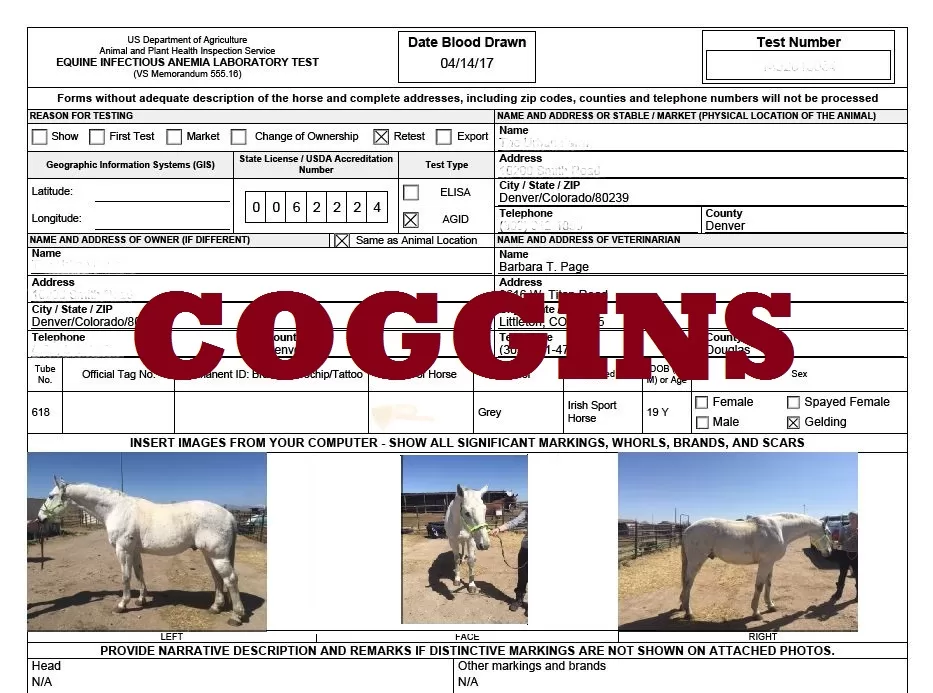Equine infectious Anemia is a bloodborne viral disease that is transmitted primarily through biting insects such as horse flies and deer flies. It is a lentivirus with long incubation periods. While it is usually transmitted through biting insects it can also be passed through contaminated objects such as needles and passed from mare to foal. After EIA virus infects a horse the incubation period is 7-45 days before symptoms are seen. EIA can affect horses, ponies, mules and donkeys. There is no vaccine and no cure for EIA. Once a horse is infected, it is infected for life.
A test was developed to detect EIA in horses in the 1970’s and was approved by the USDA in 1973. The test was developed by Leroy Coggins, one of the founders of NC State’s College of Veterinary Medicine Program. The test uses a blood sample and can determine if a horse is infected within two days. There are three forms of the disease: acute, chronic and inapparent. The acute stage comes on suddenly and the horse can die within 2-3 weeks. Often the only sign is an elevated temperature prior to disease onset. Horses that survive the acute stage can then move to the chronic stage where symptoms such as elevated temperature that comes and goes, lethargy, decreased appetite and anemia are common. The majority of horses are inapparent carriers where they show no signs of disease but are still a risk for transmitting the disease to other horses. These horses are generally only found through annual testing.
Prevention is the best medicine for this disease as there is no cure. All horses need to be tested yearly to determine their status. Also any new horse that comes on to your property that does not have a negative EIA test should be isolated and tested prior to mixing with other horses. Insect control is helpful in prevention of transmission of the disease.
Risks of disease increases in areas of known outbreaks, horses that are pastured in swampy areas and when horses attend events where a negative Coggins test is not required. We recommend yearly testing of all horses at their annual exam appointment. Even if you do not think you will travel with your horse you never know when an emergency may arise. A Coggins test is good for one year and is required to get a health certificate for your horse. Sadly, most horses that are diagnosed with EIA are eventually euthanized due to the fact that any horse that is confirmed positive must be isolated at least 200 yards away from all other horses for its lifetime. Luckily, the presence of EIA is not nearly as common as it was in the 60’s and 70’s due to frequent testing, insect control and isolation of infected animals. Please call us to schedule your horses annual Coggins test today! 951-444-1838.
Sources:



No responses yet